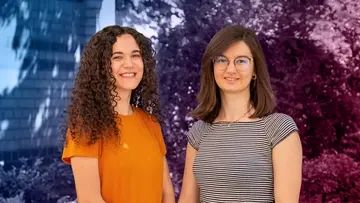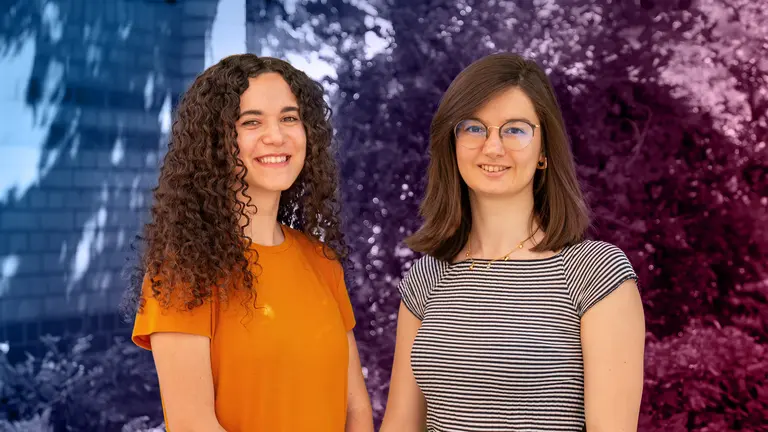
Double Victory in Algebra
Published July 15, 2024
Barbara Betti and Laura Casabella have been awarded the Gustavo Mezzetti Prize in Italy for the best master's theses in the field of algebra. The two doctoral candidates and friends share an outstanding first place.
What a wonderful coincidence! Laura Casabella studied at the University of Padua, from which she graduated in 2022 with an excellent master's degree. Barbara Betti achieved the same result at the University of Genoa. Their paths crossed as doctoral candidates at the Max Planck Institute for Mathematics in the Sciences. Chance brought them together both professionally and personally. In the evaluation of their work, the two scientists now share not only the exact same score but consequently also the prize money amounting to just under 2,000 euros – double reason to celebrate!
The Gustavo Mezzetti Prize honors the best master's theses in the field of algebra submitted at all Italian universities over the past two years. This year marks the second edition of the prize.
Barbara Betti defended in July 2022 at the University of Genova under the supervision of Prof. Alessio Caminata. She describes her scientific focus as follows: “In a positive characteristic ring, the Frobenius homomorphism is used to study its singularities. These are algebraic properties measuring "how much" the ring is not regular and, geometrically, they identify non-smooth points of the corresponding variety. A natural place to produce meaningful examples is Invariant Theory, which arises from the study of group actions over rings. The aim of my dissertation is to recall the main relations among F -singularities and then to analyze these properties in invariant rings in the modular case.”
Laura Casabella graduated from the University of Padua in cooperation with the University of Bordeaux under the supervision of Prof. Alessio Sammartano. Read how she summarizes the topic of her research and PhD thesis: “In modern Commutative Algebra, there is a rising interest in studying connections between combinatorial structures and algebraic objects. Lovász-Saks-Schrijver ideals, which are defined from orthogonal representations of graphs, are an example of this. The goal of my dissertation is to prove a conjecture of A. Conca and V. Welker about the radicality of these ideals.”











